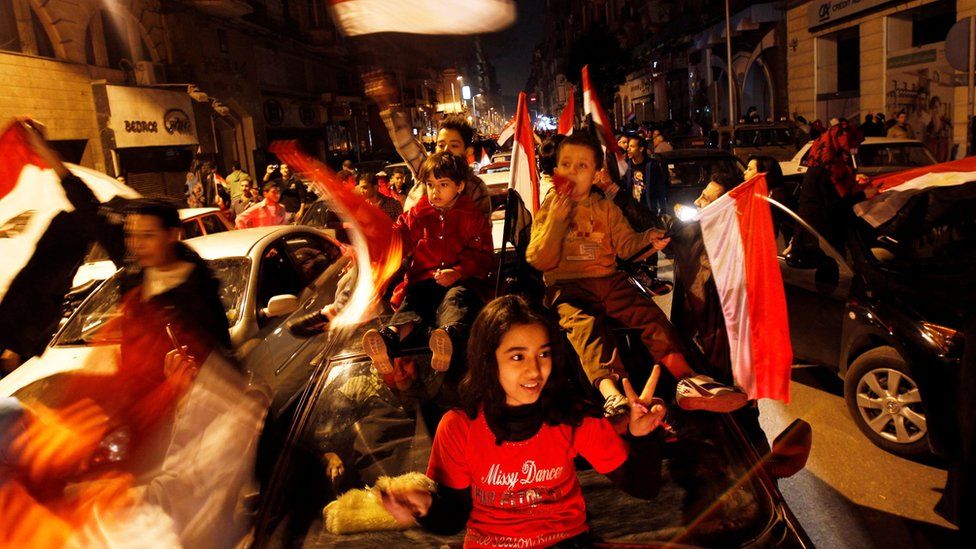A single moment in Cairo 10 years ago made me think: “Wait, this is more than just another protest.” It was a Friday, when the most important weekly congregational prayer for Muslims takes place, and it came a few days after the first demonstrations against Egyptian President Hosni Mubarak had started.
Mohamed ElBaradei, who won the Nobel Peace Prize for working to stop the spread of nuclear weapons, had emerged as critic of the regime. When he went to a mosque that Friday, everyone there expected trouble, even though Mr ElBaradei himself always urged peaceful protest. Hundreds of riot police were ready. Several thousand demonstrators were waiting.
I was a little cynical about opposition to the President. I had seen a few demonstrations in the years before that, of brave, generally middle class protestors, who would chant slogans for as long as it took for the police to arrest them, usually violently.
It was a day of pitched street battles that culminated with crowds storming bridges across the Nile that led to Tahrir Square, the symbolic heart of the city.
When Hosni Mubarak fell, exactly 10 years ago, the news roared across the crowds in the square who had by then fought off his supporters for 18 days. During the night the noise of clashes in and around the square rose over the silence of the curfew imposed by the regime. On one bizarre and violent day there was even a cavalry charge against the protestors by men on camels.
The revolution had no real leaders, which made it feel popular and democratic. That was also its downfall. The young people who had become prominent in the protests could not find a way to organise themselves into an effective political force. It was understandable. Years of authoritarian rule meant they were starting from scratch.
A free presidential election in 2012 came down to a fight between the candidates fielded by Egypt’s two organised groups. On one side was the Muslim Brotherhood who had been working since the 1920s for a state based on the laws of Islam. They believed their moment, finally, had come.
On the other was the Egyptian military, which had controlled Egypt since a group calling itself the Free Officers overthrew the monarch in 1952. Mubarak was a former air force chief, who was sacrificed by the armed forces to preserve their power, which in Egypt extends to the lucrative control of large sections of the economy.
The Muslim Brotherhood won the election, but governed badly and rapidly alienated Egyptians who were not their natural supporters. The military did all they could to undermine the government. As Egypt sank deeper into instability and violence, the generals seized power in 2013.
By the beginning of 2014 more than two thousand people, mostly civilians, are estimated to have been killed in political violence on the streets. I saw much of it: security forces levelling their weapons and directing deadly fire at a big and angry crowd outside the base where the deposed president, Mohammed Morsi, was being held; families trying to identify bodies laid out in a mosque and decomposing rapidly in the August heat after security forces killed at least 900 people as they broke up sit-ins by supporters of the Brotherhood; the dead from a huge demonstration in Ramses Square being sewn into burial shrouds at another mosque where the staircases were slippery with blood.

